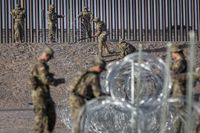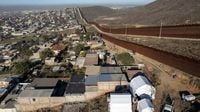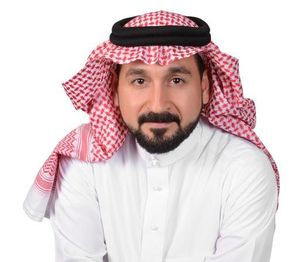On April 16, 2025, the government of Mexico sent a diplomatic note to the United States, seeking clarification on the military base that is set to be installed along the common border. President Claudia Sheinbaum revealed this development during her morning press conference, emphasizing the importance of dialogue between the two nations.
Sheinbaum stated, "Yes, there is dialogue, and we also sent a diplomatic note, indicating that it is a decision of theirs, autonomous, on their own territory, but we hope it does not cross the border and that the same collaboration in security continues as it has been until now." This statement reflects her administration's concerns regarding the potential implications of the U.S. military's actions on Mexican sovereignty.
The backdrop to this diplomatic engagement is a recent order from U.S. President Donald Trump, who authorized the U.S. Army to take control of federal lands along the Mexico border to advance his immigration policy. Trump directed the secretaries of Defense, Homeland Security, Interior, and Agriculture to facilitate the transfer of public lands for military activities, raising alarms in Mexico.
Sheinbaum expressed uncertainty regarding the objectives of this military presence, stating, "It has happened on other occasions, but the last order proposed that the Army could occupy certain federal territories. We do not know if it is to continue building the wall; we are always asking for respect and coordination." This reflects the ongoing tension between the two countries regarding border security and immigration control.
Trump's decision to establish a military base on the border mirrors his administration's intensified efforts to combat irregular migration. This strategy has seen Mexico deploy 10,000 National Guard troops at the border as a condition to pause a 25% tariff on Mexican goods. Since the implementation of this initiative, dubbed 'Operación Frontera Norte,' Mexico has apprehended 2,481 individuals and confiscated over 26.7 tons of drugs, including 163.3 kilograms of fentanyl.
In addition to the military developments, Sheinbaum announced new regulations targeting e-commerce platforms that had previously avoided value-added tax (VAT) payments. She noted that these platforms, which sell low-cost products such as clothing and electronics, are now required to register with the tax authority using their RFC (Federal Taxpayer Registry) number.
She stated, "Recently, in December and then in January, a special regulation was implemented for the importation of certain cheap products, especially those of Chinese origin, which were not paying VAT and other taxes. Now, to acquire these items, it is necessary to provide the RFC, and it has been established that VAT must be paid on them." This move is part of a broader effort to increase tax revenue from online sales.
Sheinbaum highlighted that approximately 4,000 million pesos in taxes were collected in the first quarter of 2025 that were not previously generated due to the lack of tax compliance from these platforms. She noted, "The revenue from these products is significant, and we need to be vigilant about where we are buying from and the prices, as sometimes they are very low and do not necessarily reflect the advertised product."
Amid these economic changes, Secretary of the Interior Rosa Icela Rodríguez Velázquez provided a second explanation on how citizens can vote in the upcoming elections for the Judicial Power, scheduled for June 1, 2025. She emphasized that promoting voter participation is not solely the responsibility of the National Electoral Institute (INE), but that other powers and organizations can also engage in this process.
Rodríguez explained the voting process, stating that voters will receive six ballots of different colors, each corresponding to various judicial positions. She encouraged citizens to visit the INE's website for more information about the candidates and the voting procedures.
In a move to enhance public understanding of the judicial system, Sheinbaum announced that former minister Arturo Zaldívar would be invited to the morning conference next week to explain how the Judicial Power is organized. She stated, "What does it mean to have district judges? What are magistrates? What is their role? What does the court do? How is the Judicial Power structured?" This initiative aims to educate the public on the workings of the judiciary.
As the situation unfolds, the Mexican government continues to advocate for respect and cooperation in its dealings with the United States, particularly concerning border security and immigration policies. The diplomatic note sent to the U.S. underscores Mexico's commitment to maintaining its sovereignty while navigating the complexities of bilateral relations.
In summary, the establishment of a U.S. military base on the border has sparked diplomatic dialogue between Mexico and the United States, with President Sheinbaum urging respect and coordination. At the same time, the Mexican government is taking steps to regulate online sales and promote voter participation in the upcoming elections, reflecting a multifaceted approach to governance amid ongoing challenges.







